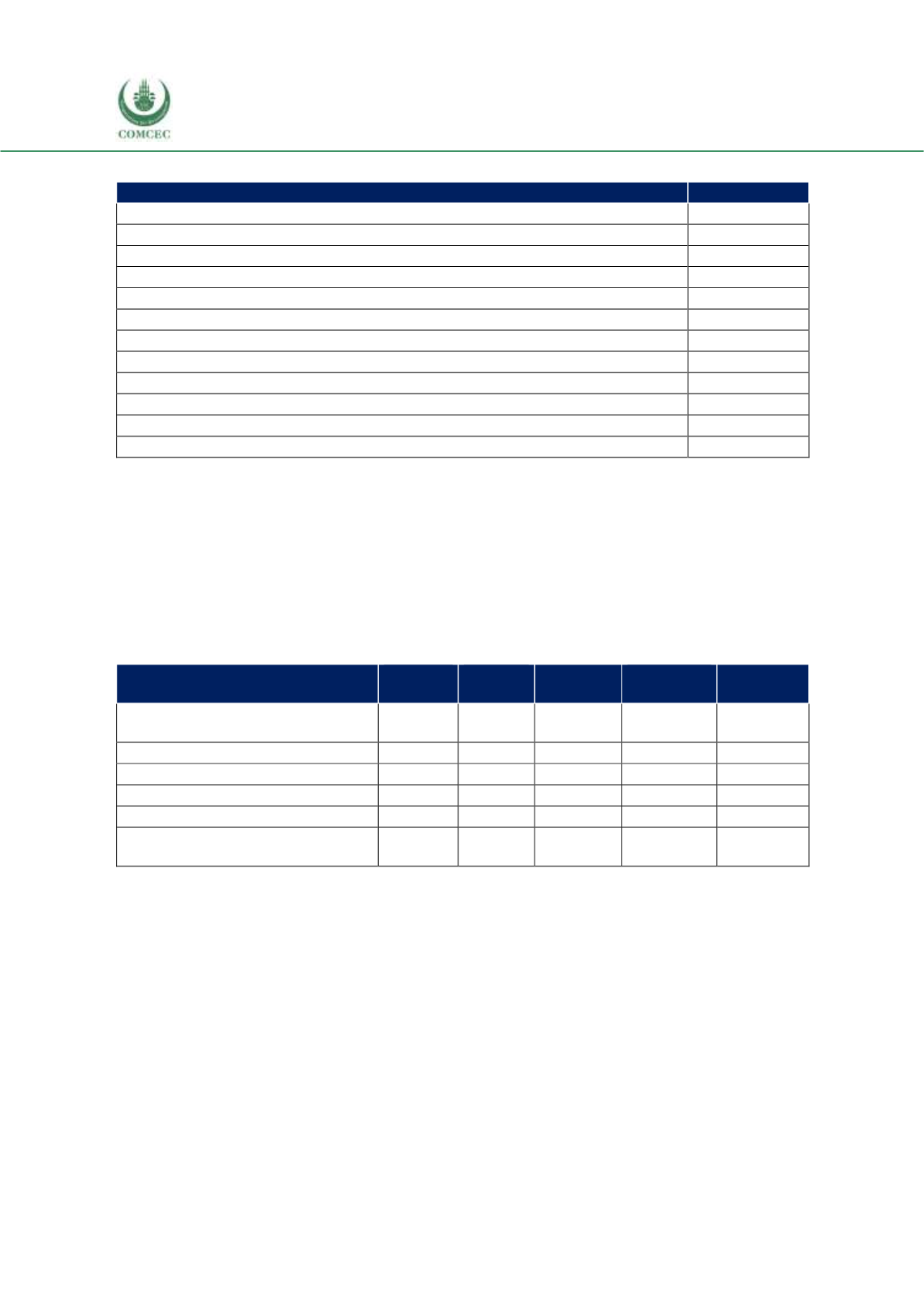

Reviewing Agricultural Trade Policies
To Promote Intra-OIC Agricultural Trade
66
Table 3. 15 Factors Limiting Agr. Trade's Contribution to Development & Food Security
Statement
Response Rate
Low farmer prices
73.9%
Stringent technical measures
60.9%
High tariffs
50.0%
No diversified export markets
41.3%
No diversified export products
28.3%
High taxes and charges
21.7%
No diversified import markets.
10.9%
Others (specified by the participant)
8.7%
Bureaucratic hurdles
The lack of global agricultural policy
Transport and trade facilitation procedures
No diversified import products
4.4%
Source: Authors’ calculations
The messages originating from two critical multiple-response questions are summarized in
Tables 3.15 and 3.16. These are critical (i) in shedding light on which factors adversely affect the
role of agricultural trade on overall economic development of the country and on the status of
food security and (ii) in identifying which factors affect agricultural trade flows of the country.
Around 57% of participants indicate that there are (agricultural) commodity or marketing
boards in their countries, and around 74% of participants believe that these commodity boards
are and will be important for facilitating foreign trade in these products.
Table 3. 16 Factors Affecting Agricultural Trade Flows
Status
Very
poor
Below
average
Average
Above
average
Excellent
Marketing knowledge and
information
13.0%
21.7%
52.2%
13.0%
0.0%
Human resources
2.2%
21.7%
41.3%
28.3%
6.5%
Financial resources
10.9%
30.4%
41.3%
17.4%
0.0%
Quality of the products
0.0%
13.0%
47.8%
32.6%
6.5%
Standardization of the products
4.4%
32.6%
39.1%
19.6%
4.4%
Technical adaptability of the
producers
10.9%
15.2%
52.2%
17.4%
4.4%
Source: Authors’ calculations
The reasons that are stated regarding the role of marketing boards mainly revolve around the
boards’ contribution to trade facilitation by
specializing on one particular product that has its own opportunities and challenges,
promoting the product in international markets,
ensuring that higher quality products are served through provided market information
and packaging services to producers, and
leading to better long-term planning and to the use of more productive techniques.
It is indicated by around 61% of participants that there are state-owned enterprises (SOEs) in
their countries. A majority of the participants (roughly 59% of them) state that SOEs are and
will be contributing to trade facilitation. Contrary to the case of marketing boards, a larger
fraction of participants states a set of concerns and reservations about the effectiveness of SOEs.


















